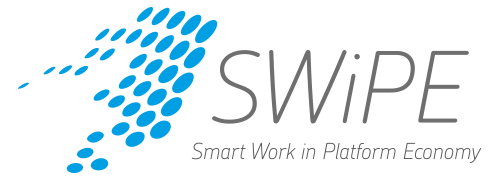
”The vast majority of mundane activities constituting human life aredriven by one’s entrepreneurial spirit to create new social or material value, compete and cooperate, transform and develop […] entrepreneurship has been reacaste [sic.] as a major social force, and method of living and learning […] nowadays entrepreneurial competences are becoming as important as literacy, and universally applicable to any career path.”
Thus writes Inna Kozlinska in the introduction to her excellent dissertation: “EVALUATION OF THE OUTCOMES OF ENTREPRENEURSHIP EDUCATION REVISITED – Evidence from Estonia and Latvia” (University of Turku & University of Tartu 2016, p. 21), to the formal acceptance of which I had the pleasure of taking part at the University of Tartu on the 22nd of December 2016. Kozlinska has conducted her research on whether entrepreneurship education design (“traditional” or “experiential”) has an effect on how students find work or behave in an entrepreneurial manner in two very interesting countries (an important digression from the Anglo-American contexts of mainstream research). She measured the objective effectiveness of entrepreneurship education and brought up a number of important, and interesting, findings.
Those initial dissertation statements are in themselves interesting, and ask for further pondering. A cynic or over-realist might note that the life of well-heeled westerners is coloured more by managerialism than by entrepreneurialism: repetition of countless routines in basically the same configuration time after time. However, even in routines some details change, and for example a significant part of media is specialised in confirming to us that, yes, even small changes in our (work)lifestyles we can express our unique creativity. Is this now “real” creativity/entrepreneurial spirit? The over-realist would suggest that this isn’t so much a discussion about incremental change in routines, but rather a more fundamental conversation about values – which although difficult to reach agreement on are still worth attention.
Starting a company requires some kind of entrepreneurial skills, and the drive to create and enhance these skills in the higher education context has a long, and diverse, history. What kind of education has the greatest impact – or is there impact at all? To now, academic research on this topic has been surprisingly weak and has largely concentrated on identifying if those courses cause any increase in student “entrepreneurship intentions”. Kozlinska’s dissertation both raises the level of the field and asks questions rather more fundamental than intentions.
Can one learn to become and entrepreneur by following a lecturer describing features entrepreneurship (“traditional” teaching) or by generating business ideas, looking for entrepreneurship opportunities to possibly starting a “practice” firm with the assistance of a mentor (“experiential” teaching). Those looking at the pedagogics of entrepreneurship education are strong supporters of methods that lead to ‘practical’ activities, and Kozlinska does indeed formulate her empirically testable core hypothesis thus: “experiential entrepreneurship education is associated with higher levels of the learning and objective outcomes among graduates than traditional entrepreneurship education (p. 286). She test’s her hypothesis by comparing the type of university-level entrepreneurship education to the experience of graduates and to objective criteria such as their employment and entrepreneurial activity in their places of work.
The hypothesis was partly supported by empirical evidence in Estonia, but not by evidence from Latvia. Why so? That surprising result led Kozlinska to compare context dependent features in the two neighbouring countries, that in recent years had both similarly transitioned from a command economy. The abstractions “traditional” and “experiential” -entrepreneurship education in fact encompass a number of different teachers with differing skills and teaching methods. Furthermore, education infrastructure in the two countries varies greatly, and graduates interest in entrepreneurship before education may be far more important regarding career choices than the design or contents of entrepreneurship education.
If we put aside for a moment the subjective entrepreneurship education experiences of Estonian and Latvian students, and focus only on objective measures (employment and entrepreneurial behaviour), the study, somewhat startlingly, concludes that: “it did not matter significantly [regarding objective measures] whether entrepreneurship was studied traditionally or experientially in Estonia, and the attendance of more experiential EE even tended to be less beneficial in Latvia” (p. 8).
Towards the end of her dissertation Kozlinska suggests a number of worthwhile suggestions for developing academic entrepreneurship education. Indeed, during the dissertation defence, the second dissertation evaluator Docent Pekka Stenholm asked a very pertinent question: how do we separate the general skills and capabilities that an academic education brings to entrepreneurial skills and capabilities from those that arise specifically from entrepreneurship education? Analytical-critical thinking, tolerance of uncertainty and the courage to try new ideas are common to both researchers and entrepreneurs (see: https://blogit.utu.fi/utu/2016/11/08/tutkija-olet-kuin-yrittaja/ in Finnish).
Stenholm’s question is pertinent also for ongoing processes in Finland where universities aim to transform their activities in a more “entrepreneurial” direction – for example my own Alma Mater the University of Turku has adopted a strategy aiming to become, quite litrally, an “Entrepreneurial University”. Alongside wondrous visions of the future it is important to keep in mind pitfalls to be avoided: pushing through entrepreneurship education programmes that are too narrow or specialised while forgetting those basic academic qualifications that are vital in e.g. the dynamic labour market brought about by the platform economy and digitalisation.
The author Seppo Poutanen is a Senior Researcher in the SWiPE project.
Read more here about Seppo Poutanen, his areas of expertise and work as a researcher.
